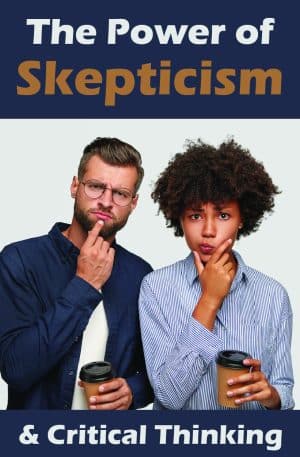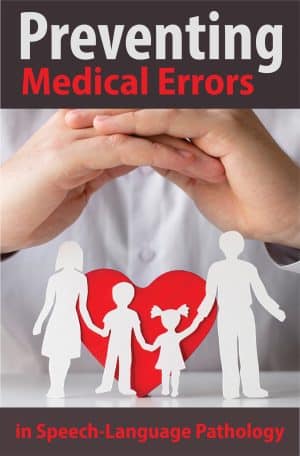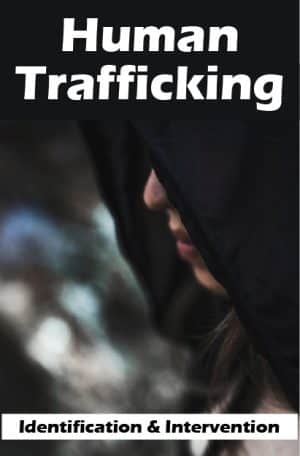- ADHD
- Adults
- Alternative Medicine
- Alzheimers & Aging
- Animal-Assisted Therapy
- Autism
- Behavior Therapy
- Child & Adolescent
- Closeout
- Communication
- Couples-Family-Parenting
- Cultural Diversity
- Depression & Anxiety
- Domestic Violence
- Ethics & Risk Management
- Gender Identity
- HIV-AIDS
- Human Trafficking
- Laws & Rules
- Medical Errors
- Mindfulness & Yoga
- Miscellaneous
- National Psychologist
- Nutrition & Fitness
- Pain Management
- Psychotherapy
- Sexuality
- Substance Abuse
- Suicide
- Supervision
- Trauma & PTSD
Supporting Children with Dyslexia
Adina Soclof, MS, CCC-SLP; Leo Christie, PhD, LMFT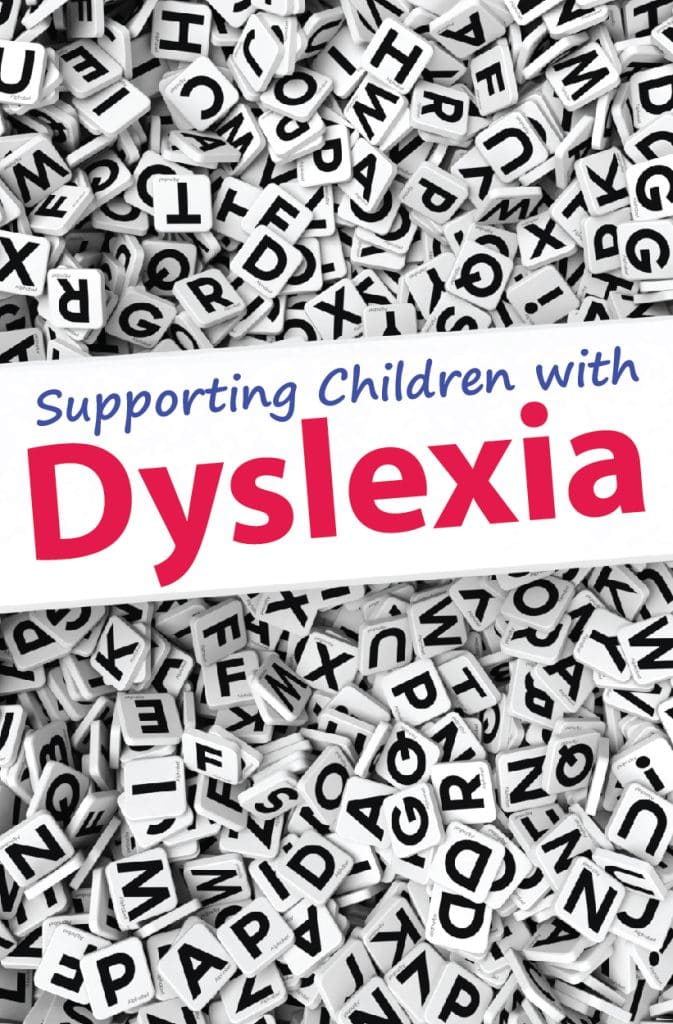
$69.00
 Introductory
Introductory
 Online
Online
Course Abstract
Supporting Children with Dyslexia is a 6-hour online continuing education (CE) course that discusses the signs, types, and causes of dyslexia, offering practical strategies for supporting children with literacy skills.
Most experts agree that dyslexia is characterized by, “marked difficulties with word reading, decoding, and spelling as evidenced by low accuracy and/or fluency on standardized assessments. There is also a general agreement that these difficulties should be inconsistent with or “unexpected” in consideration of other aspects of development, including general intellectual abilities.” There is now abundant evidence indicating that dyslexia is a localized weakness within a specific component of the language system: the phonologic module. However, dyslexia does not only affect reading, but that which is connected to reading: both spelling and writing. Furthermore, and of significant importance, it is not connected to intelligence.
We begin the course by briefly reviewing the history of dyslexia. We then discuss the signs, types, and causes of dyslexia, highlighting the importance of working memory and executive functioning skills.
We consider phonological awareness, including phonemic awareness, as the foundation for all literacy skills. Reading, spelling, and writing are discussed in separate sections, enabling the reader to focus on the necessary skills and remediation strategies for each. It is important to note that there is overlap of skills needed to read, spell, and write and therefore, information on phonics and other phonological awareness skills may be echoed throughout the course.
Practical accommodations, teaching strategies, and activities for supporting children’s academic and social emotional development are provided. A short review of assistive technological aids is also included.
Finally, we explore strategies for supporting parents and caregivers as role models and advocates for their children.
Course #61-05 | 2022 | 117 pages | 35 test questions
Learning Objectives
- Identify four characteristics or signs of dyslexia
- Specify the clinician’s role in the identification, prevention, assessment, and intervention of dyslexia
- Explain the five essential components of phonological awareness
- Define the four skills that should be included when teaching spelling
- Name the six sub-skills of writing and provide one example of each
- Discuss the five strengths and flip-side weaknesses of individuals with dyslexia
- Describe six multi-sensory strategies that support reading and writing
- List five ways that parents and caregivers can support children with dyslexia
Course Directions
This online course provides instant access to the course materials (PDF download) and CE test. The course is text-based (reading) and the CE test is open-book (you can print the test to mark your answers on it while reading the course document).
Successful completion of this course involves passing an online test (80% required, 3 chances to take) and we ask that you also complete a brief course evaluation.
About the Author(s)
Adina Soclof, MS, CCC-SLP : Find out More
Adina Soclof, MS, CCC-SLP, is a Parent Educator, Professional Development Instructor and Speech-Language Pathologist working with children in a school setting. She received her B.A. in history from Queens College and her M.S. in communication sciences from Hunter College. Adina is the founder of ParentingSimply.com. She delivers parenting classes as well as professional development workshops for Speech-Language Pathologists, teachers and other health professionals. Adina is available for speaking engagements and can be reached at asoclof@parentingsimply.com.
Disclosure
Financial: Ms. Soclof receives royalty payments from Professional Development Resources on sales of her courses.
Nonfinancial: No relevant nonfinancial relationship exists.
Leo Christie, PhD, LMFT : Find out More
Leo Christie, PhD, LMFT, is a Florida-licensed Marriage and Family Therapist with a doctorate in Marriage and Family Therapy from Florida State University. Past President of the Florida Council on Family Relations, Dr. Christie has more than 20 years’ experience in private practice with a specialty in child behavior disorders and as an instructor for over 500 live continuing education seminars for healthcare professionals. He is the founder of Professional Development Resources; a nonprofit corporation whose mission is to deliver continuing education credit courses to healthcare professionals throughout the United States.
Disclosure
Financial: Receives a salary from Professional Development Resources, Inc.
Nonfinancial: No relevant nonfinancial relationships exist.
CE Information
Psychology
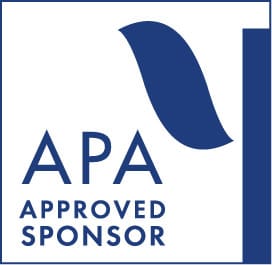
Professional Development Resources is approved by the American Psychological Association (APA) to sponsor continuing education for psychologists. Professional Development Resources maintains responsibility for this program and its content.
Professional Development Resources is CE Broker compliant (#50-1635 - all courses are reported within two business days of completion). Professional Development Resources, Inc. is recognized by the New York State Education Department’s State Board for Psychology as an approved provider of continuing education for licensed psychologists (#PSY-0145).
School Psychology

Professional Development Resources is approved by the American Psychological Association (APA) to sponsor continuing education for psychologists. Professional Development Resources maintains responsibility for this program and its content.
Professional Development Resources is CE Broker compliant (#50-1635 - all courses are reported within two business days of completion). Professional Development Resources, Inc. is recognized by the New York State Education Department’s State Board for Psychology as an approved provider of continuing education for licensed psychologists (#PSY-0145).
Speech Language Pathology
Introductory Level | 0.6 ASHA CEUs | ASHA credit is available until 09/30/2027. ASHA CEUs are awarded by the ASHA CE Registry upon receipt of the monthly completion report from the ASHA Approved CE Provider (#AAUM5181). Please note that the date that appears on ASHA transcripts is the last day of the month in which the course was completed.
Professional Development Resources is CE Broker compliant (#50-1635 - all courses are reported within two business days of completion).
ASHA CE Provider approval and use of the Brand Block does not imply endorsement of course content, specific products, or clinical procedures.
Teaching
Professional Development Resources is approved by the American Psychological Association (APA) to sponsor continuing education for psychologists. Professional Development Resources maintains responsibility for all programs and content. Professional Development Resources is also approved by the National Board of Certified Counselors (NBCC ACEP #5590); the Association of Social Work Boards (ASWB Provider #1046, ACE Program); the Continuing Education Board of the American Speech-Language-Hearing Association (ASHA Provider #AAUM); the American Occupational Therapy Association (AOTA Provider #3159); the Commission on Dietetic Registration (CDR Prior Approval Program); the New York State Education Department’s State Board for Psychology as an approved provider of continuing education for licensed psychologists (#PSY-0145), State Board for Mental Health Practitioners as an approved provider of continuing education for licensed mental health counselors (#MHC-0135) and marriage and family therapists (#MFT-0100), and the State Board for Social Workers as an approved provider of continuing education for licensed social workers (#SW-0664); the Texas Board of Examiners of Marriage and Family Therapists (#114) and State Board of Social Worker Examiners (#5678); and is CE Broker compliant (#50-1635 - all courses are reported within two business days of completion).
Customer Testimonials
I thought this was a great course with relevant information as well as great examples of implementation strategies. Very well thought out and presented in an engaging format.
This is a lengthy course, but well worth it. I will be using this as a reference with many kids.
I would strongly recommend this course. It provided so many activities and excellent resources. I have completed many continuing education activitites and have to say this was one of my favorites! :-)
This is an ambitious course with lots of detailed content. I liked the beginning of the course with the signs of dyslexia divided into the different age ranges of preschool through adult. For me these suggested specific children I have worked with that exhibited these signs. It was very helpful to have the DSM-5 criteria and the prevalence statistics. The section on the SLP's role was thorough and used the ASHA practice portal appropriately.Section 4 on phonics was a very good explanation of phonemic versus phonological with great examples of the 5 things children must master to learn the written language. l thought section 5, Reading, was the most comprehensive and practical of all the sections. There were good explanations all the way through with plenty of teaching suggestions and suggested resources. 1 especially liked the What Works Clearinghouse with all the evidence-based information to help support curriculum and resource reviews. The spelling section was helpful with the basic protocol suggested by University of Michigan. Then the section went on to discuss teaching specifics in phonics, semantics, morphology, with so many examples of teaching strategies and activities. This section gave so much direction on how to approach spelling as part of reading instruction. This is an area that 1 feel most SLP's really don't have much knowledge and have left it up to the classroom teacher. Explanations here made it clear how reading and spelling instruction needs to be coordinated for a child who is significantly challenged in language and reading. The writing section was another huge amount of information covering a wide age range of strategies. I like that it started with strategies to improve handwriting and then moved into the writing process. Many of the school aged children I work with are ready for the writing process, but their writing is so slow and laborious that it does not seem like there is enough time in a therapy session to move through what needs to be covered. It is a good reminder that as SLPs we too can support and teach good handwriting skills. This section went on with many good examples of graphic organizers, templates, rubrics, and strategies to support writing. I thought section 8 with the flip side strengths and weaknesses gave lots of things to contemplate when l am considering an individual child, observing, and determining their strengths and weaknesses. Section 9 was loaded with strategies to use in the classroom and in therapy sessions. I like that there were plenty of hyperlinks in the technology section to immediately investigate those resources. I thought the parent section had practical suggestions as well as many ways to support emotional growth for children. This course provided an excellent comprehensive introduction to dyslexia. After reading through all the sections with specifics on teaching reading, phonics, spelling, and writing, it brings home just how much a student learns in his/her years in school. Then I am reminded once again how much harder our children with language and reading challenges must work to gain that same knowledge.
I thought this was a great course with relevant information as well as great examples of implementation of strategies. Very well thought out and presented in an engaging format.
More Testimonials
Thank you for an imformative update on a complex topic!
Very satisfied that I took this course. It’s practical and useful for my kindergartners and my 4-5 grade students, so I can help them organize and develop their their writing skills. Acquiring knowledge and awareness of dyslexia helps an educator understand that children with dyslexia can do as well or better than any other children within the school system. Taking this course, helps me fill in the gaps we as educators have in helping children with unique disorders. Thank you for offering this class.
Dyslexia can be a complex disorder to understand. The text was very comprehensive in the following: identification of the spectrum disorder, the provision of multi-faceted sensory-based intervention and the inclusion of parent support. Anatomical brain images were useful in depicting underactive areas of the posterior portion brain.
Lots of great information that is practical to implement
Wonderful course. Thoroughly enjoyed the material.
Phenomenal course. Loved how specific each section was, as well as the number of strategies and techniques provided to address various areas. Enjoyed being able to work at my own speed.
Very informative information about dyslexia and useful techniques and strategies to support children with dyslexia.
Great course that provided up-to-date information and strategies.
Great course! Very relevant and useful information.
This was a very thorough article with many great specific examples and links to helpful sites online!
Great CEU. Learned what dyslexia is and is not. Teaching the components of reading is complicated! Thanks.
Learned so much! Thank you for including this in your course selection.
Very very useful. Great summary of current research.
Excellent course. Wealth of information and resources.
As a SLP who works with reading, this course was invaluable.
Very informative and lots of useful information! Another great course from PDR!
Good discussion of brain function/anatomy as it relates to dyslexia.
This course was thorough and taught information effectively.
Thank you! While I knew a lot of the information, there was still a lot that I took away. It is also super practical information to provide to teachers.
Wow...so much useful information! I'll keep this text as a reference in the future. It's outstanding, and includes so many examples and details about procedures to accomplish the goals in various areas.
I really enjoyed learning more about dyslexia. I thought the information was presented in a clear and concise manner. It was a lot of information and it very helpful to me and my current work.
